I trapped a dog in space in the Mars Horizon beta
It's not as complex as Kerbal, but things can still go very wrong.
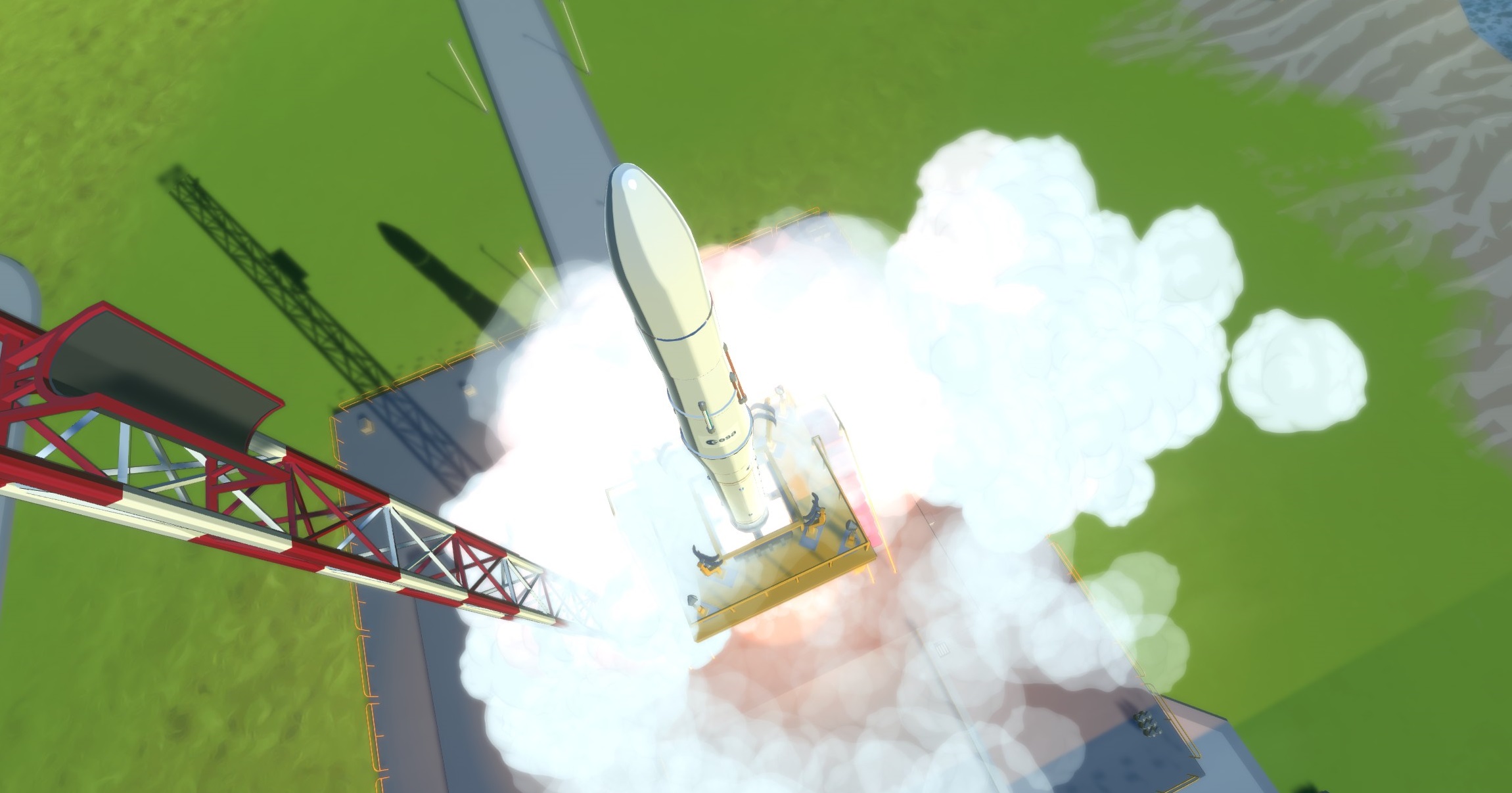

Best PC games: All-time favorites
Best free PC games: Freebie fest
Sims 4 cheats: Life hacks
GTA 5 cheats: Phone it in
GTA 6: Grand theft next
2021 games: This year's launches
Space agency management sim Mars Horizon is hosting a beta for a week, which you can still join by signing up to the mailing list. Things haven't been going great for me. I regret to inform you that I'm an animal murderer.
Look, the dog wanted to live in space. I was one of the people telling him not to go up there. "Stay down here with all your animal friends," I told him. But he wanted to be a hero. Sticking an animal on a rocket is one of the big steps to getting to Mars, but now I'm not so sure I want to reach the red planet.
I needn't have worried, however, as Mars Horizon only currently goes as far as the moon. Mars itself will have to wait. That still leaves a lot of steps, from the earliest test launches to putting humans on the unfriendly rock—all while competing with other space agencies.
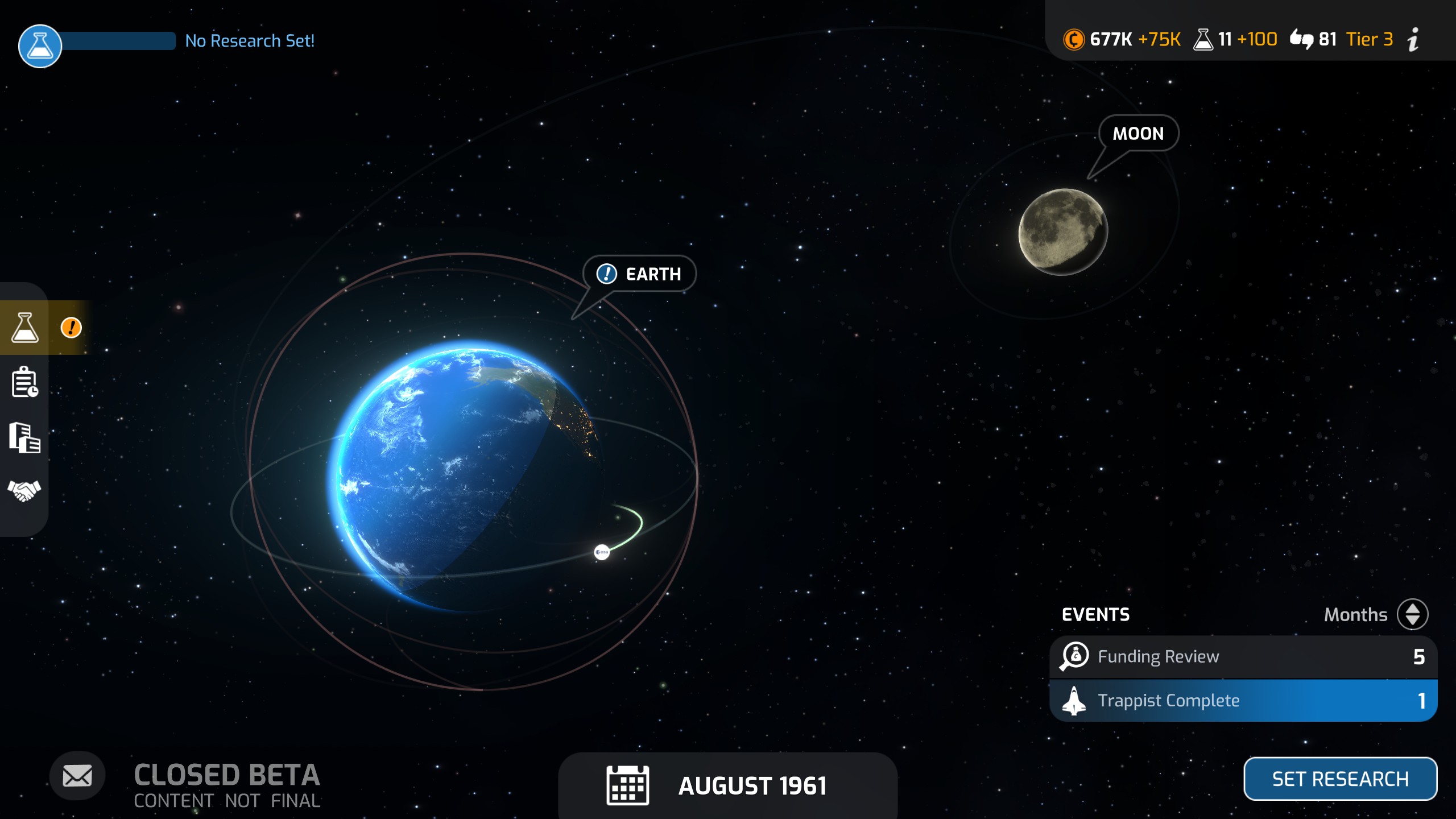
Mars Horizon has been developed with support from the European Space Agency, which may explain why it's presented as everyone's best bud while the Russians can cut corners and spin failures so that nobody minds if a rocket blows up or a dog goes missing. I should have picked them.
There's some overlap between Kerbal Space Program and Mars Horizon, but where the former is an elaborate sim with realistic orbital physics and a hardcore bent, Horizon is more of an easy-going management game where scientific experimentation takes the form of a rubbish rubbish minigame that's incredibly simple but presented in a fairly confusing way.
Before you can conduct science experiments in space, you'll need to actually get some stuff up there. That requires research, which unlocks new rocket components, missions and buildings that you have to plonk down directly, taking advantage of building connections that provide some bonuses.
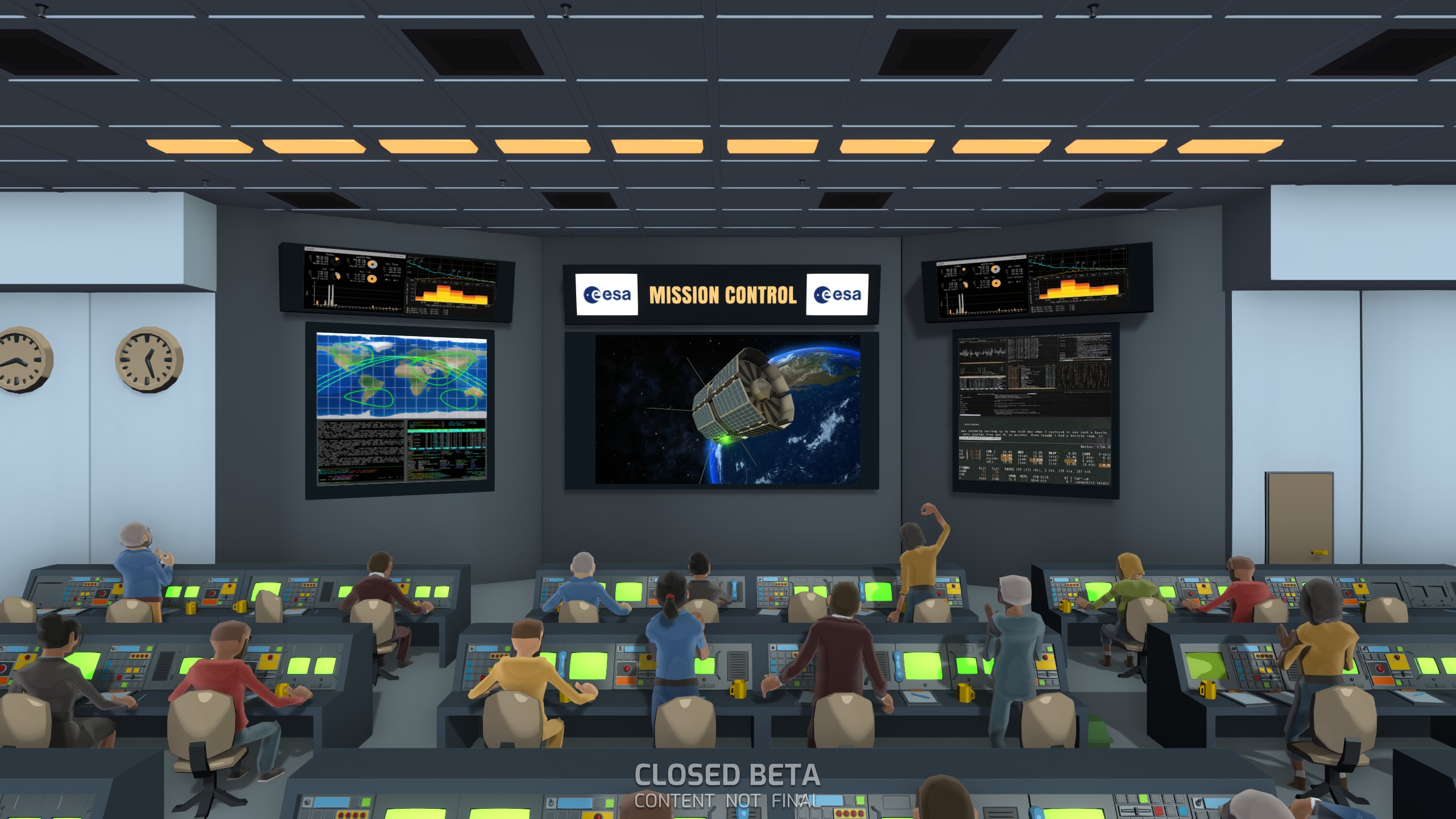
There are a lot of rocket parts waiting to be unlocked, but so far the customisation only seems to extend to a couple of sections, so there's not a whole lot of room to experiment with different builds. These all have their own values, determining launch reliability, payload reliability, how many astronauts can be stuck inside and how much power they have. You'll also need to make sure you've got enough cash for everything.
Keep up to date with the most important stories and the best deals, as picked by the PC Gamer team.
Things started off fine for the ESA, my agency of choice, with my first tests going off without a hitch. There are quite a few stages and some faffing around in the workmanlike menus, which would be fine if it felt like I was making many meaningful decisions. They are few and far between until you start unlocking more stuff, and even then I didn't feel like the actual choices were very engaging. They're all pretty similar. Rather than conducting lots of experiments with new rockets and testing out theories, construction amounts to finding the right components to meet the mission parameters. The challenge is that, until you've tried the mission, there's no clear indication what you'll actually be doing up in space.
There's quite a bit of waiting around, too, though I appreciate that it's possible to skip right to the next event, whether it's the completion of some research or a mission becoming active, rather than just fast forwarding.

It wasn't until I tossed up my first satellite that things started to go wrong. Despite poor launch conditions—partially my fault, as I selected a bad launch window so I could beat the Americans and Russians—it took off without a hitch, but things took a turn for the worse when it started orbiting the planet. See, I had to do some busywork while up in space, which meant succeeding in the aforementioned rubbish minigame.
Horizon wanted me to gather two resources, one representing communication with Earth and the other representing planetary data. Each is supported by a trio of activities with different costs and rewards. The ground control connection action, for instance, spends power to create comms, while the visual collection actions uses power to generate data. It's all weirdly abstract and appears out of the blue, not really giving you a chance to prepare beforehand. Once you've selected your actions, you've got to leave it up to fate to decide if you succeed. You can skew the odds in your favour a bit, but it didn't work out so well for me. I lost the satellite.
This put me behind the other space agencies, and also reduced my funding from the government, which slowed me down even more. Though you're ostensibly competing with the other agencies, you can also do joint missions that benefit you both and improve your relationship, and there's an unexpected layer of diplomacy. Right now it's limited to accepting these joint missions, but it will eventually be expanded. I like that you're not running your agency in a vacuum, something that's emphasised even more by random events.
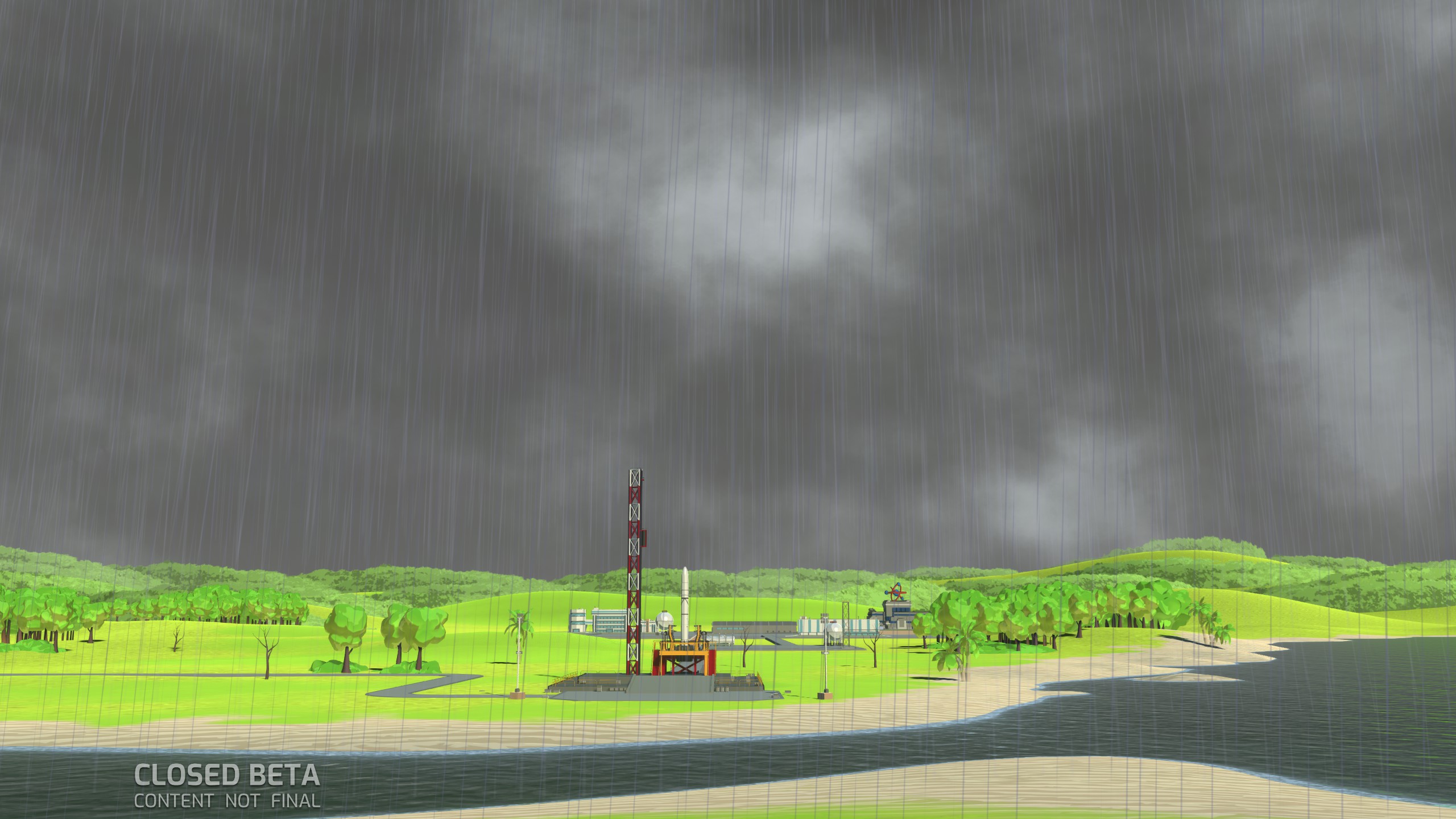
A rogue weather balloon got tongues wagging about UFOs, and when the press came calling I was given the opportunity to squash the rumours or encourage them. I did the latter, which probably isn't very ethical, but it did give me more support, which I was hoping would help when it came time to reassess my budget again.
Things were starting to look up as I took on joint missions, did some PR outreach and constructed a building that allowed me to run two missions at once. I was even hopeful that I could catch up to my frenemies. And then I decided to put a dog in space. The first launch was a failure, despite the good odds, killing one dog before he could even leave Earth's blue skies. At least it was a quick death. I should have stopped there, but with blood already on my hands I decided to try again.
Dog #2 managed to actually get up into space, which was very exciting for all of us back in ground control. Time to bring him back down, I thought, but no—there was still work to do. Once again the minigame reared its head, identical to the last one apart from the increased demands. I'd planned ahead this time, however, making sure I had a lot more power. Unfortunately, electrical interference and other issues got in the way, and I ran out of turns to complete the mission.
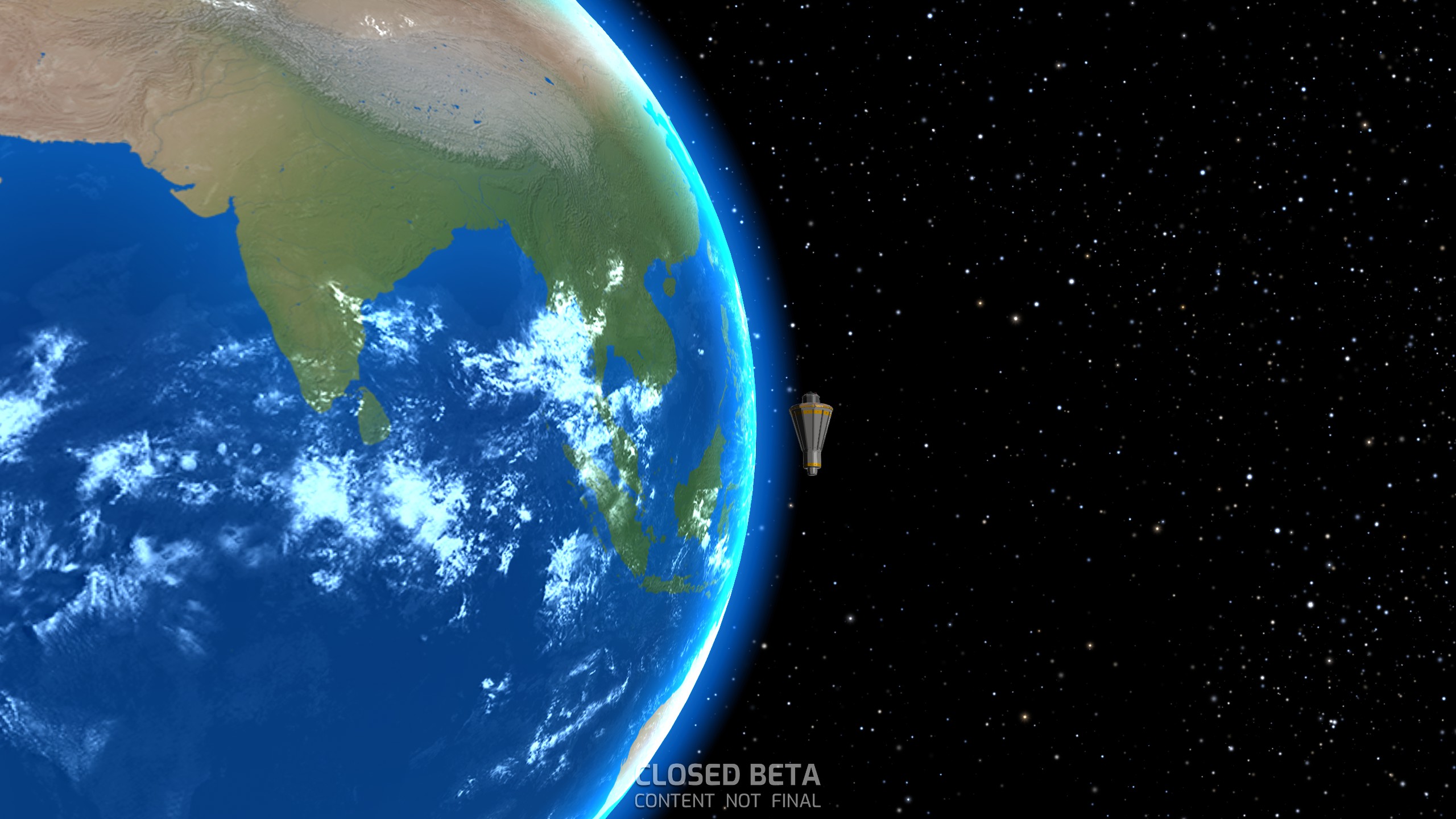
I had to watch as the payload spun off, complete with confused pooch. There was nothing I could do, for some reason, so I guess he just lives out in the cold void of space now. Sorry, boy!
Not keen to be responsible for yet more pets dying up there, I packed it all in. I decided to leave it to the US and Russia, who were well ahead of me anyway. Europe's dream of planting a flag on the moon was in tatters, but at least no more dogs had to die.
If you fancy flinging some pooches up into space, the beta is live now, and you'll be able to play until May 4.

Fraser is the UK online editor and has actually met The Internet in person. With over a decade of experience, he's been around the block a few times, serving as a freelancer, news editor and prolific reviewer. Strategy games have been a 30-year-long obsession, from tiny RTSs to sprawling political sims, and he never turns down the chance to rave about Total War or Crusader Kings. He's also been known to set up shop in the latest MMO and likes to wind down with an endlessly deep, systemic RPG. These days, when he's not editing, he can usually be found writing features that are 1,000 words too long or talking about his dog.

